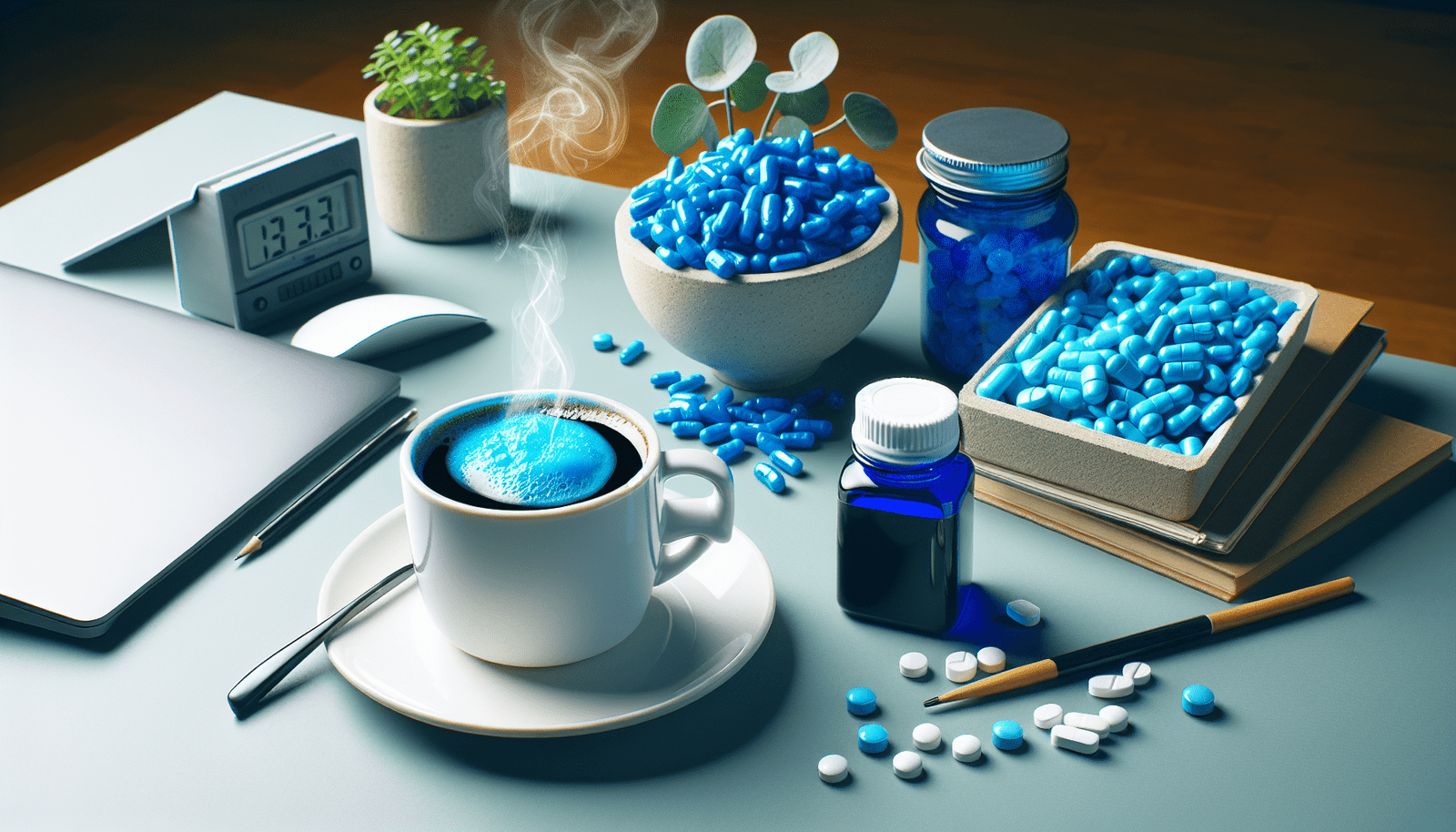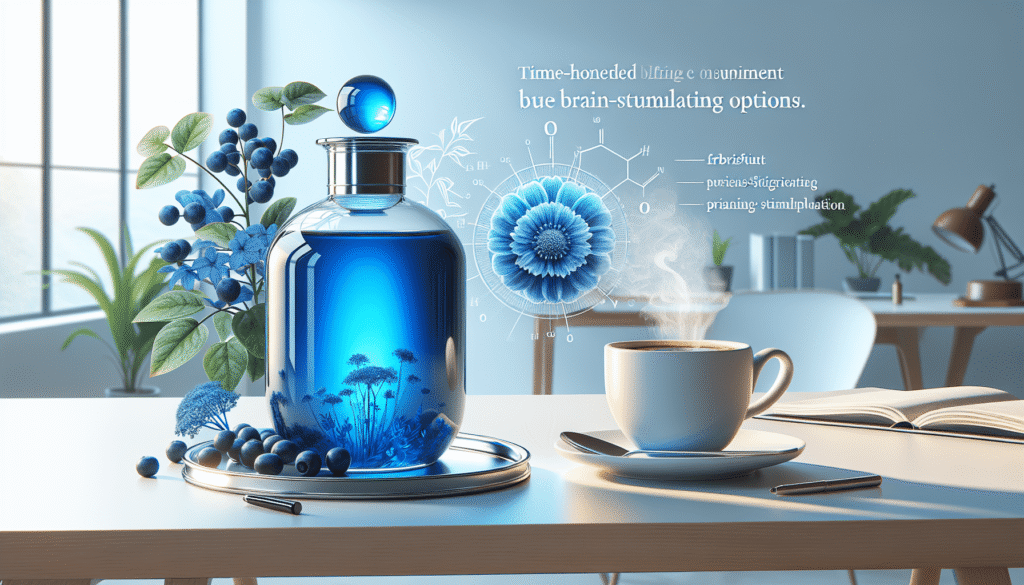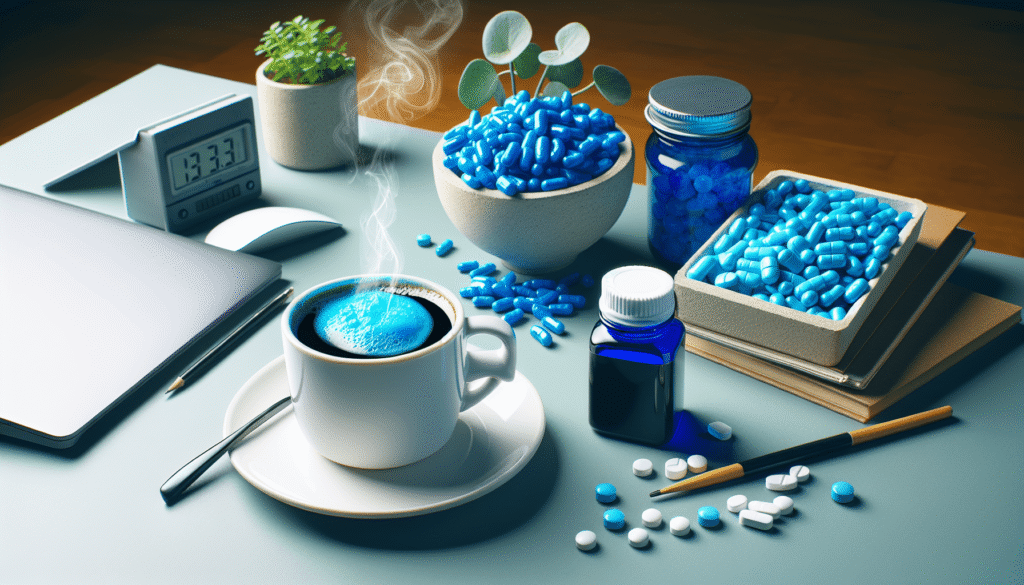
Ever found yourself in that mid-afternoon slump, wondering whether to grab another cup of coffee or try something different? You’re not alone. Many people look for ways to stay alert, focused, and sharp throughout the day. With so many options available, have you considered the brain-boosting properties of Methylene Blue in comparison to the more commonly used caffeine? Let’s unpack this together.
What Is Methylene Blue?
Methylene Blue (MB) is a synthetic compound that has been used for various medical applications since the late 19th century. Initially, it served as a dye, but it later found a niche in the treatment of certain conditions, including malaria and methemoglobinemia. It’s worth noting that it also has some fascinating neuroprotective properties.
When it comes to cognition, Methylene Blue has been studied for its ability to enhance mitochondrial function. This may lead to improved energy production in the brain—something that can help you feel more alert and focused.
How Does Methylene Blue Work?
Mitochondrial Enhancement
At the heart of Methylene Blue’s effectiveness is its impact on mitochondria, the powerhouse of our cells. It helps in optimizing ATP production, which is the energy currency in your body. When mitochondria work efficiently, they facilitate better brain function and cognitive clarity.
Neuroprotective Properties
Research suggests that Methylene Blue may also have neuroprotective effects, meaning it can potentially safeguard brain cells from damage. This attribute could be especially beneficial for you if you’re looking to maintain cognitive health as you age.

What Is Caffeine?
Caffeine, on the other hand, is a well-known stimulant found predominantly in coffee, tea, and various energy drinks. For many, it serves as a trusted companion for tackling tiredness and enhancing alertness. Caffeine works primarily by blocking adenosine receptors in the brain, which are responsible for promoting sleep and relaxation. By blocking these receptors, you feel more awake and energetic.
The Science Behind Caffeine
Caffeine doesn’t just keep you awake; it also boosts the release of neurotransmitters like dopamine and norepinephrine. This could explain why you might experience improved mood and a sense of well-being after that morning coffee. But like any relationship, the one with caffeine can be complicated.
Methylene Blue vs. Caffeine: The Benefits
Cognitive Enhancement
Both Methylene Blue and caffeine have been linked to cognitive enhancement, but they do so in different ways. Methylene Blue may improve memory retention and learning efficiency by enhancing mitochondrial function. Caffeine, while effective at increasing alertness, might not offer the same long-term cognitive benefits.
Table 1: Cognitive Enhancement Comparison
| Feature | Methylene Blue | Caffeine |
|---|---|---|
| Mitochondrial Support | Yes | No |
| Long-term cognitive improvement | Potentially | Short-term alertness boost |
| Memory Enhancement | Yes | Limited |
Mood and Motivation
Let’s touch on mood, shall we? Caffeine is known for its immediate uplifting effects, while Methylene Blue’s benefits tend to be more subtle and cumulative over time. If you’re seeking a quick pick-me-up, caffeine excels. If you’re interested in cultivating a longer-lasting sense of well-being, Methylene Blue might be worth considering.
Possible Side Effects
Every good thing has a flip side. Caffeine can lead to jitteriness, anxiety, and might cause sleep disturbances. For some individuals, it can be addictive, leading to withdrawal symptoms if consumption is halted suddenly.
Methylene Blue, while generally considered safe in small doses, can also have side effects, particularly if taken in excess. Some reported side effects include nausea and headaches. Overall, it’s crucial to be mindful of how your body reacts to each of these substances.
Table 2: Side Effects Comparison
| Side Effects | Methylene Blue | Caffeine |
|---|---|---|
| Jitteriness | No | Yes |
| Anxiety | Rarely | Yes |
| Sleep Disturbance | Unlikely | Yes |
| Nausea | Possible | Rare |

Forms and Usage
How to Use Methylene Blue
Methylene Blue is available in various forms, including tablets and liquid solutions. If you’re thinking about incorporating it into your routine, it’s essential to consult a healthcare provider first, as dosing and individual reactions can vary widely.
Typically, a lower dose is recommended when starting. Some studies suggest doses ranging from 0.2 mg to 4 mg per kilogram of body weight, but this can differ based on personal health needs. The way you take it matters too—using it in conjunction with food can help mitigate potential gastrointestinal side effects.
How to Use Caffeine
For caffeine, usage is often straightforward. The typical serving size ranges from 80 mg to 200 mg, depending on your preferred source—be it coffee, tea, or energy drinks. Most people find that one to two cups of coffee is sufficient for a productivity boost. That said, experimenting with different sources can yield varying effects, so listen to your body.
Timing Is Everything
Best Times for Methylene Blue
Timing your Methylene Blue consumption could also make a difference. Some enthusiasts suggest taking it in the morning or early afternoon for optimal cognitive benefits, while others might find it beneficial before engaging in mentally demanding tasks.
Best Times for Caffeine
As for caffeine, many individuals consume it in the morning to jumpstart their day, while others use it strategically during work hours to fend off fatigue. If you’re planning to improve sleep quality, avoid caffeine in the late afternoon and evening hours.
Safety Concerns and Research
Research Proof for Methylene Blue
While Methylene Blue shows promise, ongoing research continues to examine its various applications, particularly in cognitive health. Animal studies and some human trials demonstrate its potential, but more rigorous clinical trials are necessary to establish conclusive benefits and safety guidelines.
Research Proof for Caffeine
Caffeine, being widely studied, offers a wealth of research illustrating its effects on cognitive function, mood, and physical performance. For many experts, the conclusion is clear: moderate consumption can lead to beneficial effects without significant health risks.
Final Thoughts: Which Is Right for You?
When trying to decide between Methylene Blue and caffeine for your cognitive boost, it really comes down to personal preference and individual body responses. If you’re after a quick, reliable burst of energy, caffeine may do the trick. However, if you’re interested in a more nuanced, potentially neuroprotective option, Methylene Blue could appeal to you.
A Symbiotic Approach
If you find both appealing, why not consider using them in tandem? Some people choose to cycle through different cognitive enhancers, tailoring their approach based on how they feel on a given day. Just be sure to listen to your body and consult your healthcare provider when making these decisions.
Wrapping It Up
Life is all about making informed choices. Understanding Methylene Blue and caffeine through their benefits, drawbacks, and usage can empower you to optimize your cognitive sharpness.
So next time you feel that familiar fatigue creeping in, weigh your options. Whether you reach for your favorite coffee or decide to experiment with Methylene Blue, being mindful of what you consume will ultimately lead to a cleaner brain boost and a more alert day.